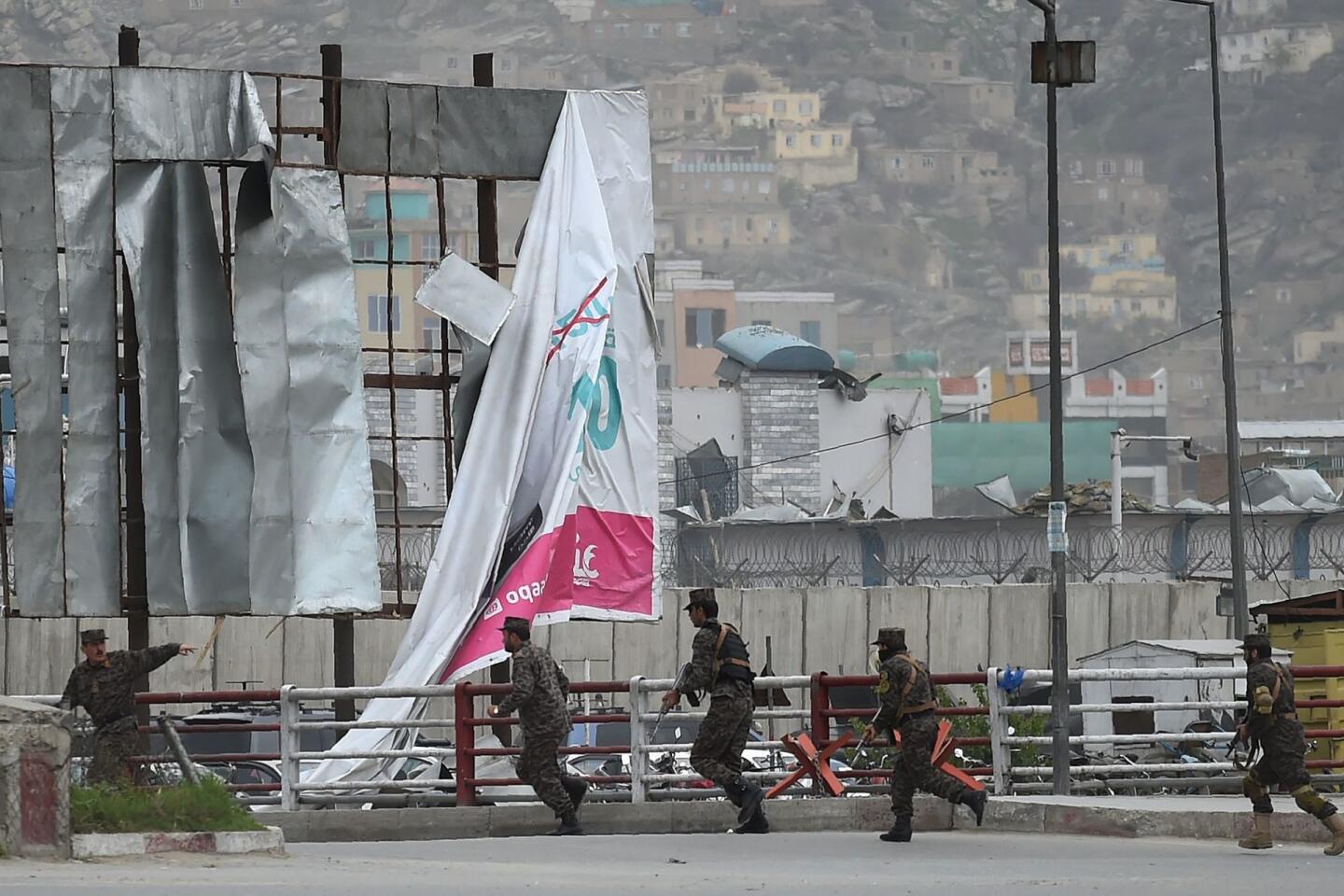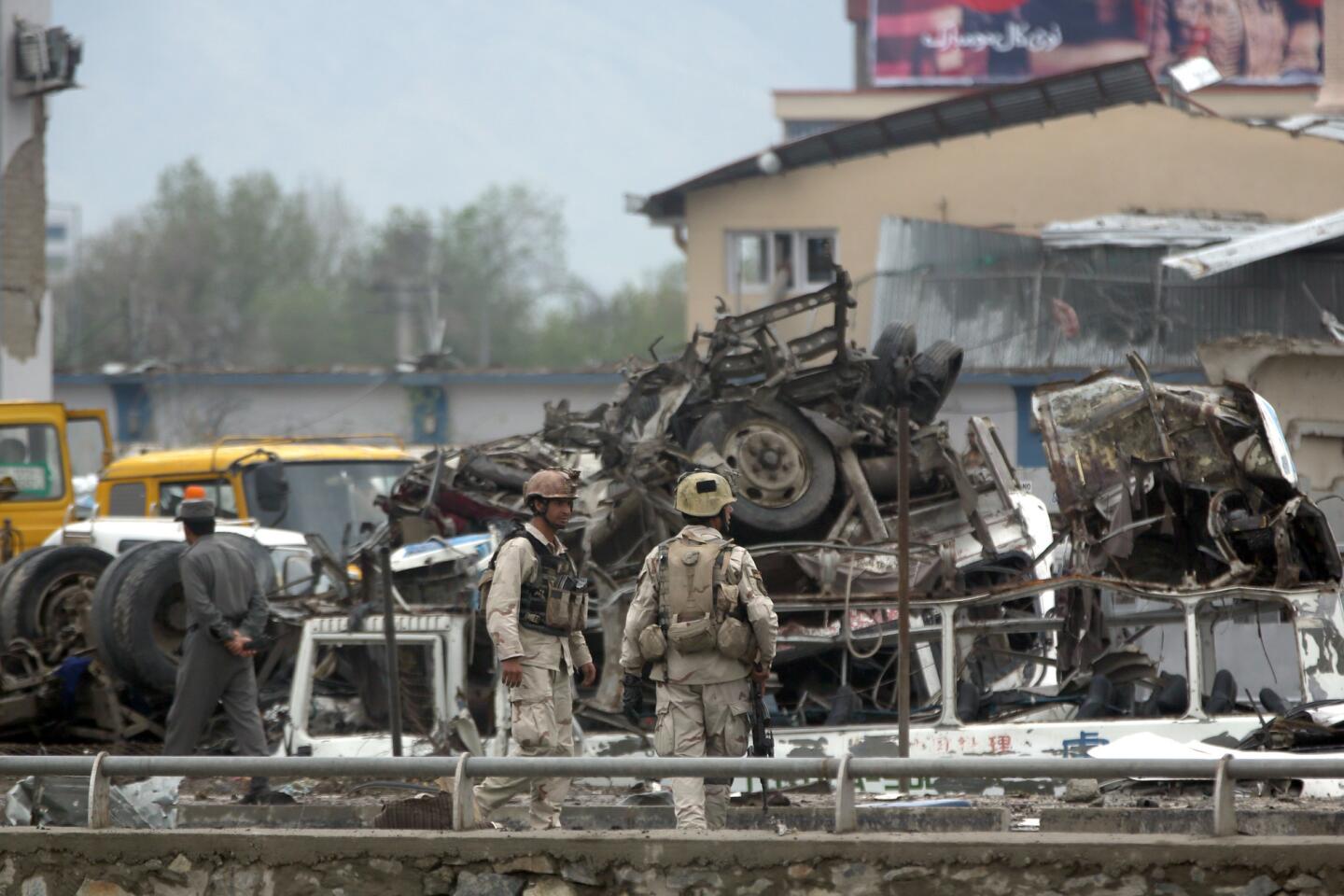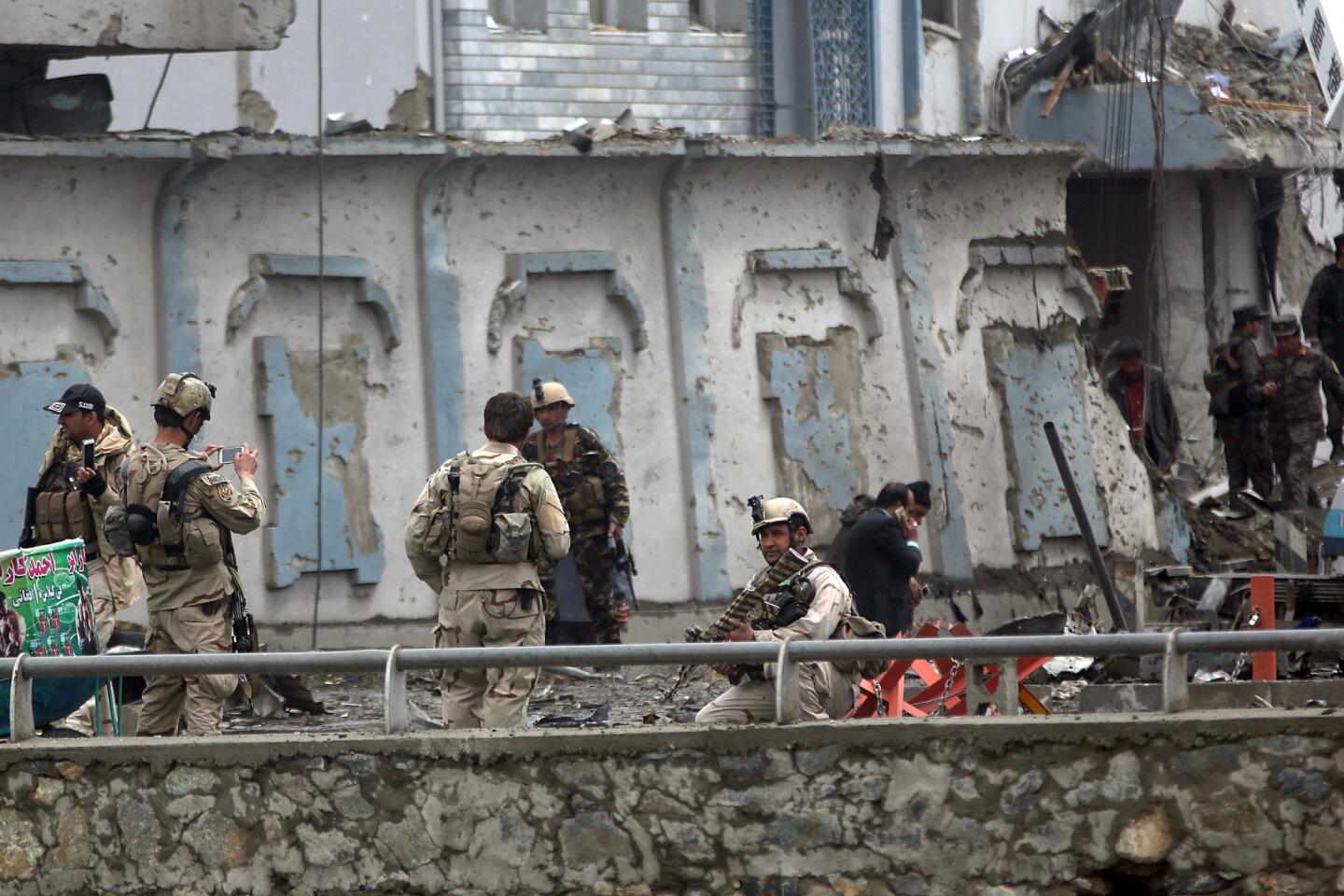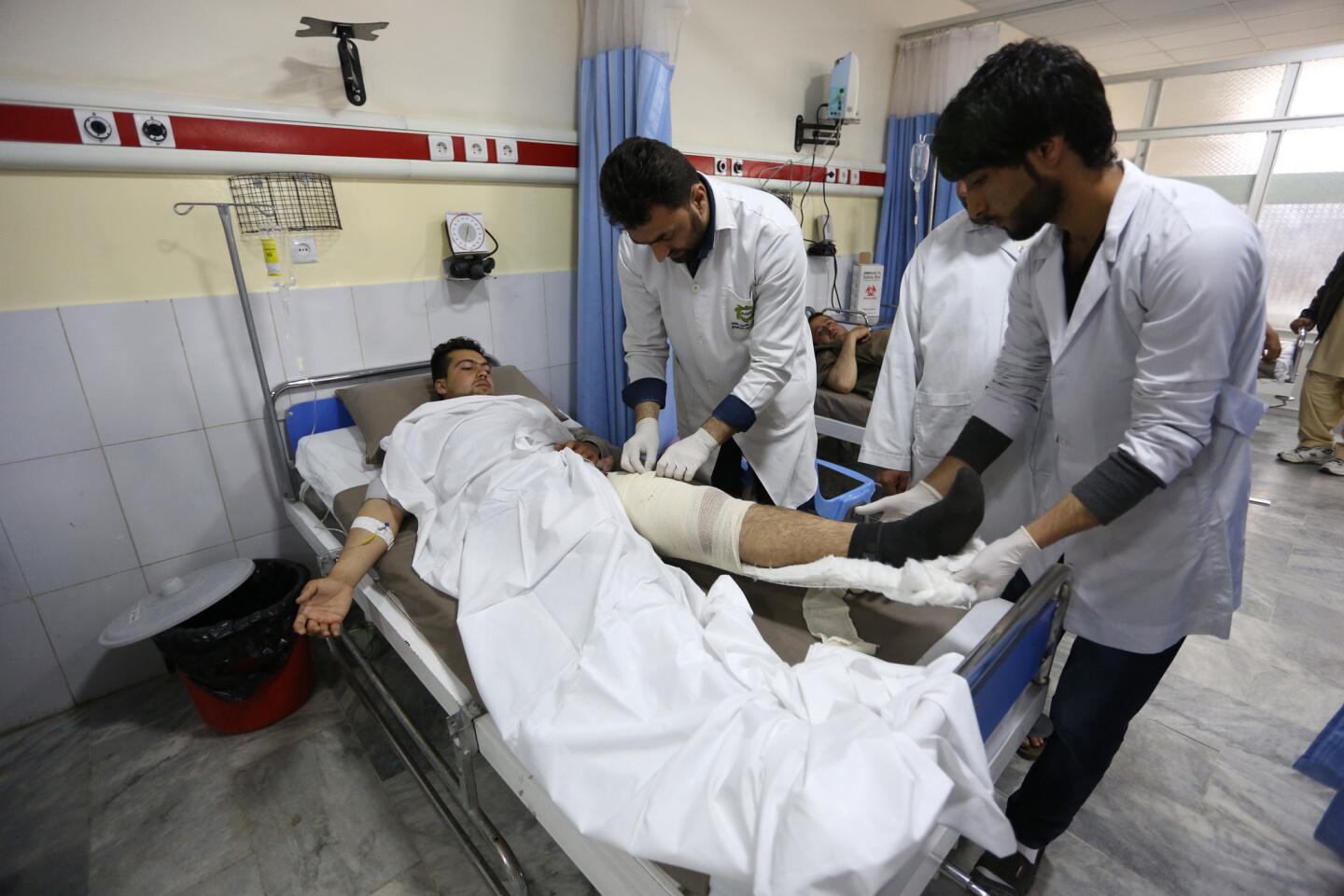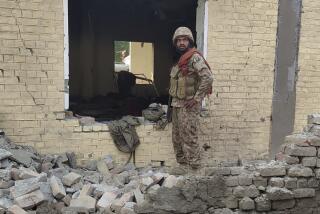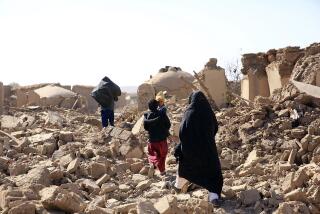Taliban suicide bombing kills 30, injures hundreds in Kabul; children among the victims
A Taliban-claimed suicide bombing in a high-traffic area of central Kabul killed at least 30 and injured 327 Tuesday morning, government officials said.
The blast occurred after an explosives-laden vehicle was detonated near the Afghan intelligence agency. Preliminary reports indicated that at least two of those killed and a vast majority of those injured were civilians, including children and women.
At an afternoon news conference, the Ministry of the Interior said the blast came from a load-bearing truck packed with explosive materials and stationed at a nearby parking lot.
According to a Taliban statement, the target was a directorate responsible for security of high-level officials.
“A martyrdom-seeking unit of Islamic Emirate launched a heavy attack on 10th directorate intelligence building,” the statement, published on the group’s website, read.
The bombing is the first major attack by the Taliban since it announced the start of its annual “spring offensive” last week. In recent years, the group has made the nation’s urban centers, often seen as safer than more remote areas, a focus of its efforts.
The Ministry of the Interior confirmed the death toll, saying the majority of those killed were civilians, including women and children.
The initial 9 a.m. blast was heard for miles throughout the city. Residents said the sound of gunfire lasted for at least two hours following the explosion.
Security officials said it appeared the deadly attack was carried out by three people, at least two of whom were killed.
The attack site, a highly trafficked road near the presidential palace compound, remained on lockdown throughout much of the morning.
An employee of the office of administrative affairs, near the presidential palace, told The Times no one was allowed in or out of the premises because of the fighting. Heavy gunfire could be heard.
Sediq Sediqqi, Ministry of the Interior spokesman, confirmed that one attacker had been gunned down by security forces.
The government worker, who could not be named because of security concerns, said the volume and intensity of the initial explosion were unprecedented.
“I have never heard a blast so loud. Everyone around us was startled by the sheer volume of the explosion,” the worker said.
The casualty toll is the highest from a bombing in the capital since August, when a late-night truck bombing in the Shah Shahid neighborhood left at least 240 people injured.
In the hours following the attack, groups of men and women lined up at several of the capital’s hospitals to donate blood to the victims.
Both President Ashraf Ghani and his chief executive, Abdullah Abdullah, condemned the attack.
Though many Afghans wondered how a car laden with such a large amount of explosives could make it past the Afghan capital’s many security checks, Ghani said Tuesday’s attack was, in fact, a sign of the Taliban’s weakness.
A post on the president’s Twitter account said the attack showed “the enemy’s defeat in face-to-face battle” with the Afghan National Security Forces.
Abdullah, who went to visit the attack site and victims at the hospital, said the blast showed the “barbarity” of the armed opposition.
“Today’s terrorist attack in Kabul is a clear sign of terrorists’ hostility and enmity against the Afghan people,” Abdullah said in the hours after the attack.
The U.N. Assistance Mission in Afghanistan also condemned the attack, likening it to a war crime.
“This attack shows the devastation caused by the use of explosive devices in urban areas and once more demonstrates complete disregard for the lives of Afghan civilians,” said Tadamichi Yamamoto, the Secretary-General’s deputy special representative for Afghanistan. “The use of high explosives in civilian populated areas, in circumstances almost certain to cause immense suffering to civilians, may amount to war crimes.”
Abdullah said he would postpone his May visit to Pakistan based on “initial evidence of today’s suicide attack.”
Though Pakistan is party to the four-nation group (along with Afghanistan, China and the United States) that is working toward peace with the Taliban, the Afghan people have long accused Islamabad of aiding and abetting the armed opposition, including the Taliban.
After last summer’s attack on the Shah Shahid neighborhood of Kabul, Ghani and Abdullah, who up until that point had been hopeful of Pakistan’s efforts toward peace in Afghanistan, accused Islamabad of not working in good faith toward a resolution to the current conflict.
Tuesday’s blast comes only days after the United Nations released a report saying civilian casualties continue to reach record highs in Afghanistan.
Between Jan. 1 and March 31, the United Nations Assistance Mission in Afghanistan documented 1,943 civilian casualties. While the number of deaths — 600 — fell by 13%, the 1,343 injuries marked an 11% increase over the same period last year.
The U.N. also cited a 24% increase in casualties from complex suicide attacks, much like the one carried out Tuesday.
Latifi is a special correspondent.
ALSO
Israeli soldier charged with manslaughter in shooting of wounded Palestinian knife attacker
Brazil’s lower house clears way for President Dilma Rousseff’s impeachment
Rescue goes slowly in Ecuador after 7.8 quake; death toll tops 400, expected to rise further
More to Read
Start your day right
Sign up for Essential California for news, features and recommendations from the L.A. Times and beyond in your inbox six days a week.
You may occasionally receive promotional content from the Los Angeles Times.
